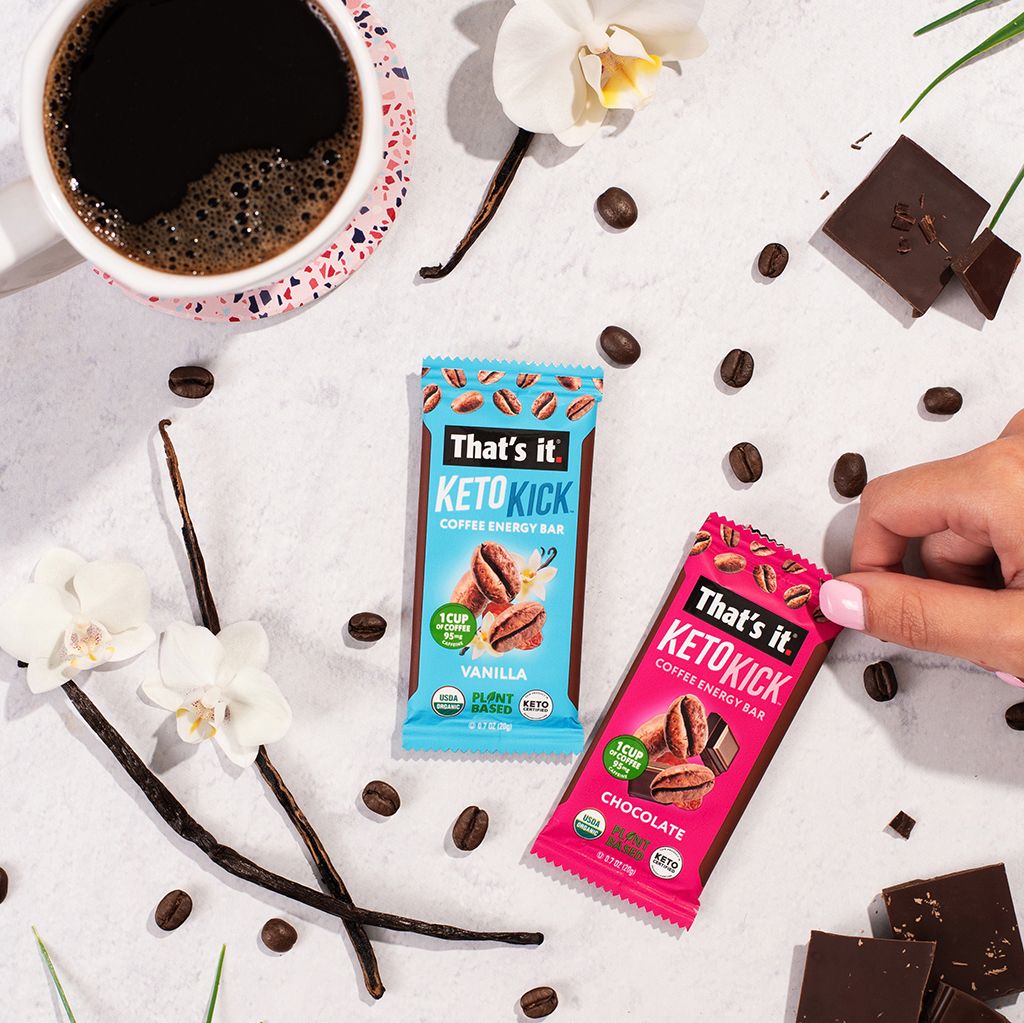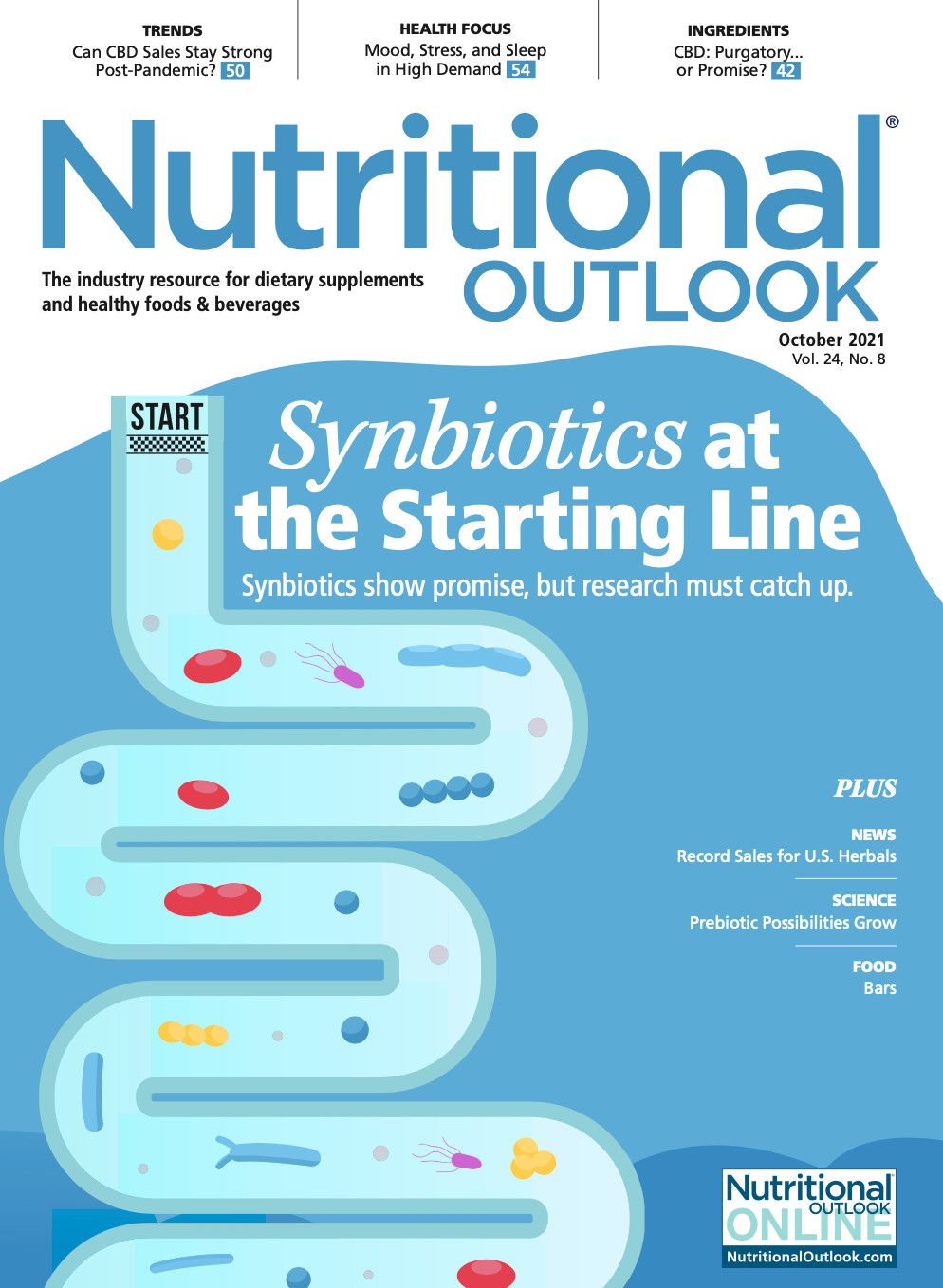Raising the Bar with Keto: Even as the bar category gets a piece of the keto action, focusing on health and wellness long-term will ensure brands have staying power
From fad to forever: One brand explains how keto companies must look beyond the diet alone to offer more of what consumers want.
Photo from That’s It

The high-fat, low-carb diet known as the ketogenic (“keto”) diet continues gaining fans in the food space. According to Mintel’s Global New Products Database, foods and beverages launched with keto claims accounted for 2.3% of all food and beverage launches between June 2020 and May 2021, compared to just 1.3% of all launches during that same time frame the previous year.1 Consumers are seeking keto alternatives to their favorite foods because the ketogenic diet promises weight-loss benefits—and, let’s face it, people will always want to lose weight. While low-carb is not a particularly new concept (remember the Atkins diet?), new variations of the ketogenic diet, such as the Whole30 diet, have cropped up and renewed interest. In some ways, too, the Paleo diet has keto qualities. With any diet, convenient on-the-go solutions are an attractive proposition; therefore, it’s no surprise that keto is advancing in the bar space.
According to SPINS, during the 52 weeks ending May 15, 2021, products tapping into the keto trend—specifically, shelf-stable cookies and snack bars with a low-to-no net-carb content—saw 21.31% growth in sales compared to the previous year.1
It’s clear that consumers are interested in keto products, and manufacturers want to get a piece of that action, which is not always easy from a formulation standpoint. For example, That’s It (Los Angeles), a bar brand that makes products predominantly from fruit, saw the keto category as a major opportunity but also a major challenge. You see, the keto diet limits the number and types of fruit one can eat due to many fruits’ prohibitive carbohydrate content. After much hard work, That’s It achieved a bar that is not only keto certified but one that also had a great deal of added value.
“We’ve been monitoring the keto space for a while,” explains Lior Lewensztain, founder and CEO of That’s It. “We were looking to try some new innovations, being very data focused, and came across this convergence of keto and coffee energy in our data as trends that were obviously ticking up,” he tells Nutritional Outlook. “We were very pleased that we were able to create a plant-based keto product, as well as one of the cleanest keto products you’ll find, at only six ingredients. If you look at any of these keto bars out there, they just have a really long list of ingredients. We were able to keep it super clean, super premium, and still able to integrate this coffee energy aspect.”
The product, called Keto Kick, contains only six ingredients. In addition to dates and tapioca fiber, there’s organic garbanzo beans, organic cocoa, sea salt, and organic, single-source Ethiopian coffee delivering 95 mg of caffeine or one cup of coffee worth of caffeine.
For keto bar makers, one lesson to learn from this example is that a convergence of attributes will attract a wider range of consumers. Keto is big, indeed, but so is energy. On the other hand, consumers also love clean-label products with small ingredient decks.
Lessons for the Future
The bar category certainly took a hit during the pandemic because of the lack of movement necessitating on-the-go products, but as the country begins to recover from the pandemic, it’s important to observe what strategies resulted in the best outcomes. In Lewensztain’s view, it was his brand’s focus on health and wellness that allowed it to thrive, even during the pandemic. A focus on health and wellness can mean healthy, clean ingredients as well as functional benefits.
“I think that’s where consumers went during the pandemic, so we were fortunate in that we weren’t just a snack bar or a junk food–type item,” says Lewensztain. “With the focus on health and wellness, consumers more so than ever really started paying attention to eating in a way that allows them to maintain their health and hopefully feel better, so we were perfectly aligned with that.”
Reference
- Shoup ME. “Keto, a Long-Lasting Trend? New Keto Product Launches Double in Past Year.” Food Navigator-USA.com. Published online June 28, 2021.

Prinova acquires Aplinova to further increase its footprint in Latin America
April 7th 2025Prinova has recently announced the acquisition of Brazilian ingredients distributor Aplinova, which is a provider of specialty ingredients for a range of market segments that include food, beverage, supplements, and personal care.

.png&w=3840&q=75)

.png&w=3840&q=75)



.png&w=3840&q=75)



.png&w=3840&q=75)
























